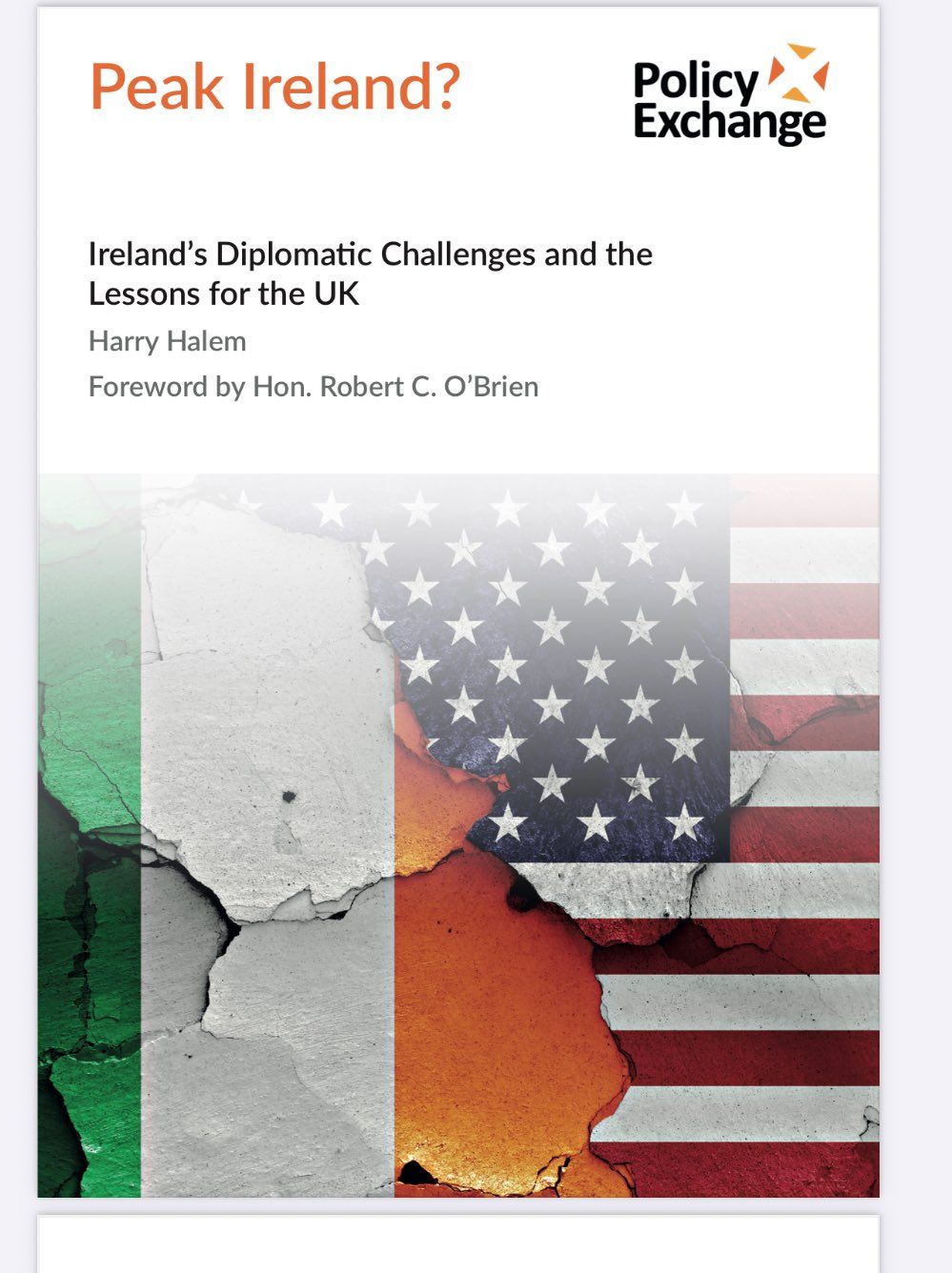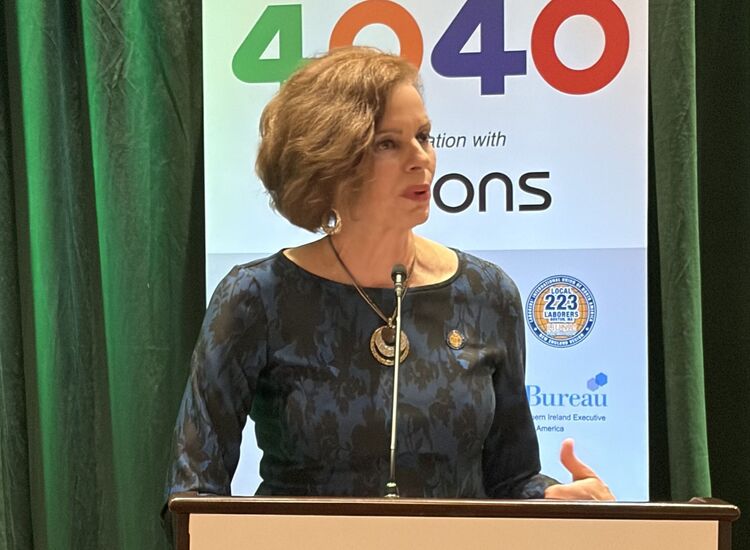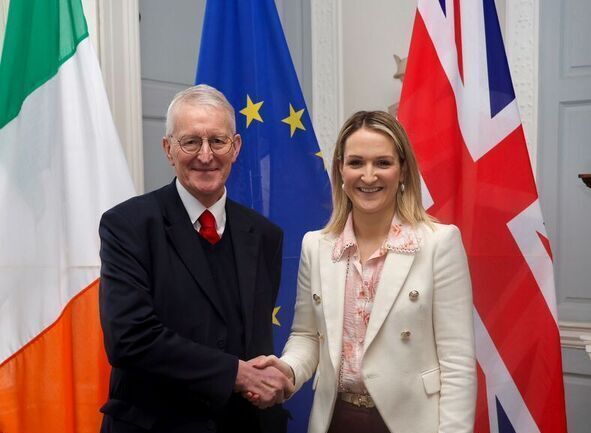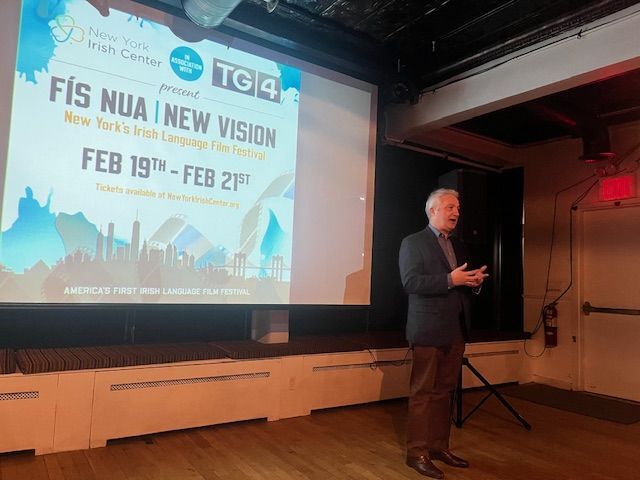The Ancient Order of Hibernians has condemned a report out of London entitled "Peak Ireland? Ireland’s Diplomatic Challenges and the Lessons for the UK."
The report has been released by the London-based Policy Exchange and includes a foreword by former U.S. National Security Advisor Robert C. O’Brien.
The AOH has labelled the report “a British polemic dressed in borrowed credentials with an American accent, designed to weaken U.S.–Irish relations.”
The report, according to an AOH statement, brands Ireland a “freeloader” that “sat out the fight against fascism,” while ignoring that Ireland aided the Allies through the Donegal Corridor, D-Day weather data from Blacksod Point, and cooperation with MI5 against German agents.
The AOH noted that disagreement is not disloyalty: Ireland’s UN record mirrors many NATO allies.
“The UK’s own recognition of Palestine proves friends can differ; Ireland is entitled to the same freedom — friendship should not be confused with fealty,” stated Neil Cosgrove, the AOH’s National Political Education Chair.
"This is a transparent attempt to undermine Ireland’s 'special status' in Washington in favor of the so-called 'special relationship.'" wrote Cosgrove.
In his foreword to the report O'Brien stated: “Ireland has long enjoyed a privileged status in Washington, DC. This has served Dublin well through challenging times…But in an era in which the United States under President Trump is seeking to put the American interest first, the U.S. relationship with Ireland is coming under unprecedented scrutiny.”
“The Trump administration seeks to bring back jobs and production in critical sectors to the United States. But Ireland, a low-tax haven for international business, has gained a huge advantage for its own economy by offering sweetheart tax deals for American tech and pharmaceutical companies to leave our shores for theirs.”
“All the while, despite its professed neutrality, Ireland pursues an increasingly activist foreign policy that is marked by its divergence from everything the Trump administration stands for, particularly in the Middle East.”
“This Policy Exchange report brings together a wealth of information about the Irish model of economics and foreign policy in a dispassionate and forensic way. It should be required reading for American lawmakers, given the special status that Ireland continues to enjoy on the Hill…For strong believers in the Irish relationship, all is not lost. Importantly, this report shows that a growing number of voices in Ireland are worried about the consequences of such an approach.”
The AOH described the Policy Exchange as a "center-right London think tank with frequent engagement with the UK’s security and defense establishment. Though it is fronted by a foreword from former U.S. National Security Advisor Robert C. O’Brien, this is a UK publication dressed in borrowed American credentials."
The AOH, in its statement, said it was "deeply disturbed that a publication seeking political traction in London and Washington, fronted by a former presidential advisor, would distort history to cast Ireland as cowardly, unreliable, and disloyal. The foreword claims Ireland 'sat out the fight against fascism' and calls it a 'freeloader.'That is not analysis — it is propaganda posing as analysis, and it disrespects both Ireland’s historical record and its right as a sovereign democracy to chart its own course.
The AOH statement continued: "In 1939, Ireland as a nation was only 17 years old and one of the poorest countries in Europe. It was small and lightly armed: about 41,000 in the regular army at peak and fewer than 300 naval personnel manning a “navy” consisting of a World War I-era British gunboat used for fisheries patrol, a converted steam trawler adapted for minesweeping, and six small motor torpedo boats for coastal defense. The Air Corps had only a handful of obsolete biplanes and no radar.
"Joining the war would have brought bombardment and invasion Ireland could not resist. Neutrality was prudent pragmatism, not moral ambiguity. Yet Ireland still contributed to the Allied war effort, pushing at the boundaries of neutrality— facts Mr. O’Brien conveniently ignores: Donegal Corridor: Neutral Ireland allowed Allied flying boats vital access to the North Atlantic to protect convoys from U-boats (the Lough Erne Catalina that located Bismarck used this route)l Blacksod Point weather: As Europe’s westernmost station, Blacksod provided regular wartime observations that informed Allied Atlantic forecasts and the D-Day timing; Counter-espionage: Irish Military Intelligence (G2) worked with MI5, disrupting German operations and arresting agents such as Hermann Görtz; German airmen and sailors were strictly interned under the Hague Convention; while a benevolent blind eye was turned to Allied 'escapes.'
"The report’s recycling of the well-worn 'De Valera Hitler condolences' chestnut is especially deplorable. It misrepresents a single act of diplomacy by a leader renowned for his fastidiousness in upholding neutrality to the letter, not an expression of sympathy or admiration. That talking point is propaganda by repetition — emotionally charged, historically empty, and meant to distract from Ireland’s quiet cooperation with the Allied cause.
"As a sovereign democracy, Ireland has both the right and a responsibility to its own people to set its own course, even when others may disagree. The attempt to portray Ireland’s United Nations voting record as evidence of disloyalty is misleading; Ireland’s positions have been broadly in line with those of other European democracies, including many NATO members and U.S. allies.
"Not marching in lockstep is not disloyalty — it is the mark of genuine democracy. The UK’s recognition of Palestine, which diverges from U.S. policy, shows that allies can differ on matters of conscience without weakening their friendship. Ireland is entitled to the same freedom; friendship should not be confused with fealty.
"Modern Ireland may be neutral, but it has never been isolationist. Since 2001, over two million U.S. troops have transited Shannon Airport on their way to and from theatres of service, and Irish peacekeepers continue to serve alongside American and allied forces in UN and EU missions worldwide. Ireland’s record is that of a nation committed to peace, partnership, and international responsibility — not of a 'freeloader.'
"That a UK policy institute should accuse Ireland of “freeloading” when Britain’s own flagship aircraft carrier must embark a U.S. Marine Corps squadron to field a full air complement, and the U.S. Navy must screen it because Royal Navy destroyers spend more time in dry dock than at sea, is the height of hypocrisy.
"The Policy Exchange report substitutes insinuation for evidence. It frames disagreement as disloyalty, cherry-picks history and statistics, and ignores reforms underway in Ireland’s defense forces and economic policy. It omits Ireland’s compliance with the OECD 15 percent global minimum tax, its adoption of the Commission on the Defence Forces plan, and its decades of quiet cooperation with U.S. and British security through Shannon and intelligence channels. It relies on a borrowed American name to give a UK polemic borrowed credibility.
"Peak Ireland? is not a policy analysis — it is a British polemic dressed in borrowed credentials with an American accent, and an 'O' thrown in for good measure. Its intent is not to inform but to influence. That is made plain in Mr. O’Brien’s own statement that it 'should be required reading for American lawmakers, given the special status that Ireland continues to enjoy on the Hill.'
"This is a transparent attempt to undermine Ireland’s 'special status' in Washington in favor of the so-called 'special relationship.'"









